On June 28th, it was reported that Azuki, an NFT project, had completed the presale of its new series, Elemental Beans. Chain data showed that a total of 5862 addresses received the new NFTs, and there was no remaining supply for public sale. However, the release of the new NFTs led to a “collision image” incident that caused the official team to fall into a trust crisis.
NFT project Azuki’s new series: How did it “crash and burn”?
In January 2022, Azuki entered the NFT market for the first time. With its unique Japanese anime style, Azuki quickly won the favor of many NFT enthusiasts and soon became a highly anticipated new leader.
During this period, the Azuki community launched various NFT protocol standards and novel gameplay in the Web3.0 field, such as the ERC721A protocol, PBT protocol, NFT fragmentation, Azuki partner BEANZ series, etc.
However, the new series Elemental Beans that was released this time completely crashed and burned.
- NFT marketplace Magic Eden is about to add support for Bitcoin BRC-20 tokens
- When Russia is in trouble, does WAVES soar? A detailed explanation of the local Russian public chain, WAVES.
- AI is driving the growth of NFTs and opening up new market opportunities.
As can be seen from the figure below, the new NFT series that was released is completely self-plagiarized, and as such, various Web3 communities are “dissing” the project’s behavior of cutting leeks.
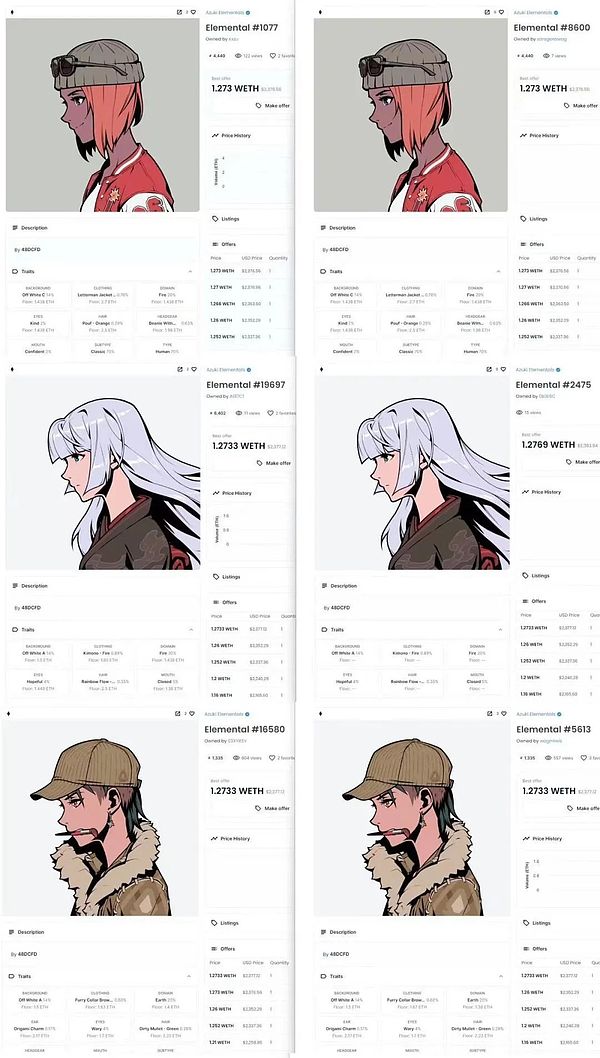
Image from Web3 community
Community members also criticized the new NFTs that were released this time, saying that they were just taking off their clothes and selling them again.

Image from Web3 community
In response to community members pointing out that Elementals’ opening images had duplicate images, Azuki co-founder 2PMFLOW responded that it was a technical glitch. Due to the Ethereum block reorganization, the event logs of the data provider were outdated, which led to the metadata of a small number of Tokens being processed incorrectly. The team is working hard to restore the correct images and metadata.
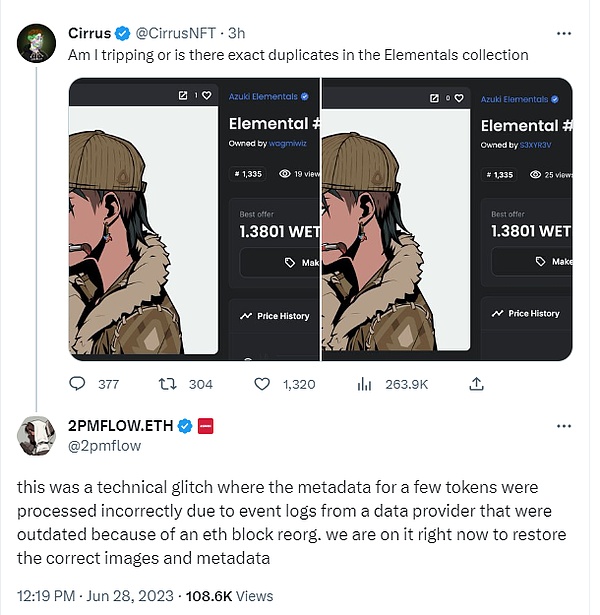
Regarding the problem of Elementals’ casting and opening images, Azuki’s official Discord released an announcement stating, “We have clearly heard all the feedback. Team members are working on what needs to be done next. You can look forward to a statement and next steps to be released later tonight. We know that the next steps are very important, and we hope to do them well. We understand everyone’s feelings and frustration.”
However, the market does not see it that way.
The recent public opinion crisis has had a negative impact on Azuki. Due to the collapse of community sentiment and the decline in product value, Azuki has lost some of the trust and support of users and investors, and the entire Azuki series has fallen.
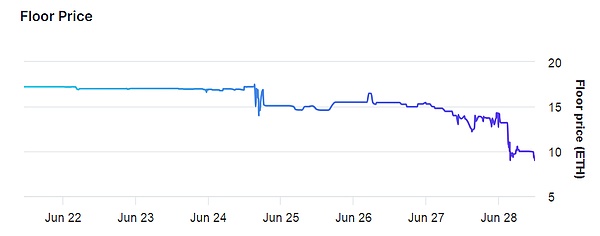
It can be seen that the main reasons for the criticism and sell-off of Azuki are as follows:
(1) The gap between the early publicity and the actual delivery was too large.
On June 24, the Azuki project released a beautiful trailer for Azuki Elementals, which received over 1 million views on Twitter. Combined with the Hilumia Metaverse plan announced by the Azuki project at the beginning of this year and various offline activities before, the Azuki community had very high expectations for Azuki Elementals.
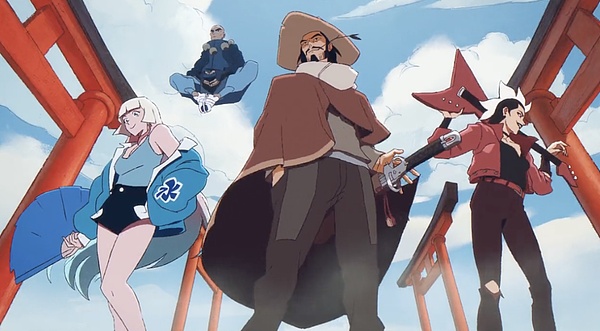
Screenshot of the Azuki Elementals trailer
However, when Azuki Elementals was released, the Azuki community found that it was just a “copycat” of Azuki. The project spent a lot of effort on publicity, but failed to deliver a product that satisfied the community.
(2) Issues with Azuki Elementals itself:
Quality issues:
Compared with Azuki’s beloved art and design, Azuki Elementals’ PFP images have many flaws: the characters’ mouths are misplaced, and there are inexplicable black pixel blocks, etc. Besides, the style is very similar to Azuki, so players who participated in casting Azuki Elementals cannot feel any sincerity from Azuki. On the contrary, Azuki Elementals is considered to be a disguised increase of Azuki, which reduces the demand for Azuki. Therefore, the Azuki community started to sell off Azuki.
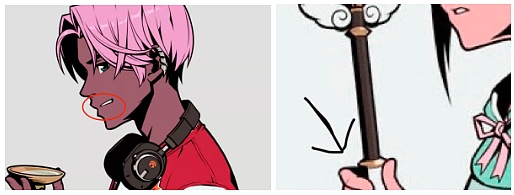
Also the art for one of the Azuki Elementals has a problem 💀😂 pic.twitter.com/LWlbnM1svN
— Lamboland (@LambolandNFT) June 28, 2023
Technical issues:
Multiple NFTs in Azuki Elementals store the same metadata, which caused the holders of Elementals to find that their Azuki Elementals NFTs were completely identical to others’ NFTs except for the ID number. Although 2PMFLOW, the co-founder of Azuki, responded that this was due to the event logs of the data provider becoming invalid due to the Ethereum block reorganization and that the metadata would be re-uploaded later, Azuki NFT players have lost trust in the project team. Because this practice challenges the common NFT player’s understanding of NFT ownership and decentralization, it is not acceptable to the community.
Looking at the Azuki Elementals and contract code, we can see that the contract holder only needs to write in a new gallery link path to replace all of the Azuki Elementals’ images.

https://etherscan.io/address/0xb6a37b5d14d502c3ab0ae6f3a0e058bc9517786e#code
Actually, the current owner of Azuki Elementals only has the NFT number, and the metadata storage address currently points to the project’s private cloud server https://elementals-metadata.azuki.com/elemental/ (currently refused access). This indicates that the displayed images and attributes do not belong to users, and the project party does not intend to use IPFS services or store related data directly on the chain.
The big brother who bought the dips and the “phished” users
According to on-chain data, when Azuki, Beanz, Elemental, etc. were all falling, the big brother machibigbrother.eth was buying Azuki series NFTs against the trend.
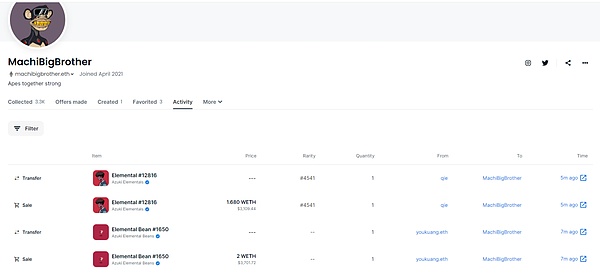
However, some Azuki users suffered another blow during the depreciation of NFTs and were attacked by phishing.
According to the Beosin EagleEye security risk monitoring, early warning and interception platform under the blockchain security audit company Beosin, on June 28, 2023, a certain user’s AZUKI#8468 and AZUKI#8964 were stolen. The victim visited a phishing website carefully crafted by the attacker and clicked on an operation that needed to be confirmed through the wallet (which may be disguised as receiving rewards, etc.), resulting in an attack.

The Beosin security team analyzed that the attacker induced the victim to call the Upgrade To function, and modified the implementation contract address of the victim’s OpenSea account proxy contract. As the implementation contract has been modified to a malicious contract, the attacker can directly call the contract to transfer the victim’s NFTs.


Writing to this point, we still need to be vigilant against phishing attacks.
We recommend the following Beosin Alert anti-phishing plugin to all readers and friends. It can identify most phishing websites in the Web3 field and guard the security of your wallet and NFT assets.

Download the anti-phishing plug-in:
https://chrome.google.com/webstore/detail/beosin-alert/lgbhcBlockinggiobjacpmcgckfgodjeogceji?hl=en
Also, according to Beosin KYT, the 20,000 ETH revenue from the sale of NFTs has been transferred to the multi-signature contract 0x2aE6B0630EBb4D155C6e04fCB16840FFA77760AA and the funds have not yet moved as of the time of writing.
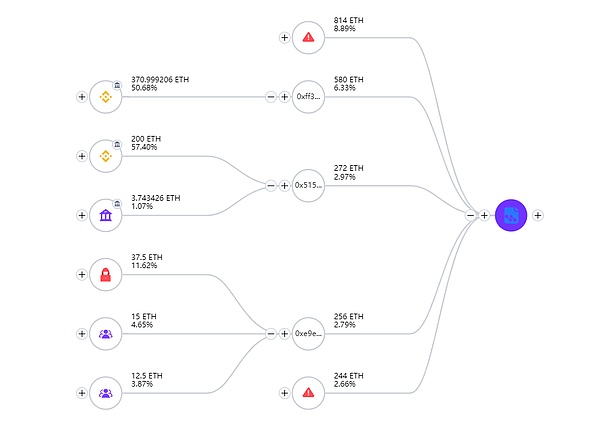
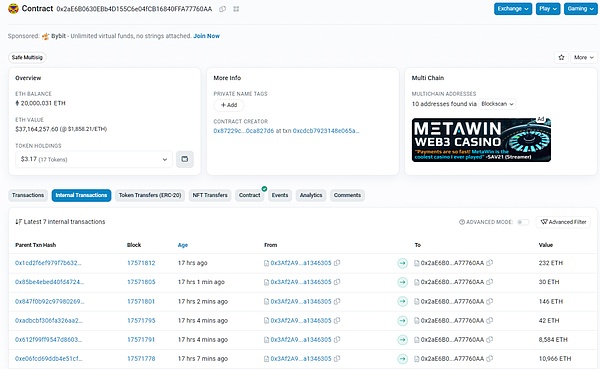
In conclusion:
Currently, the “condemnation” of Azuki by the community has not ended yet. If this crisis is not properly resolved, it may have a long-term impact on Azuki’s brand image and reputation. Therefore, Azuki needs to take proactive measures to solve this problem, restore market confidence, and establish a stronger and more reliable brand image.
Like what you're reading? Subscribe to our top stories.
We will continue to update Gambling Chain; if you have any questions or suggestions, please contact us!